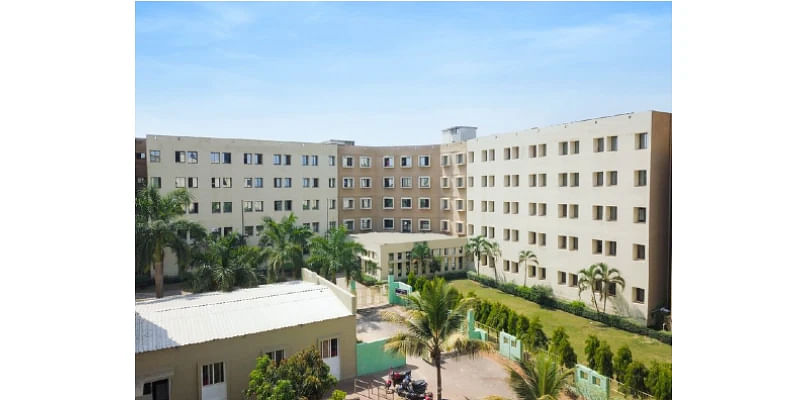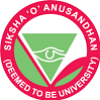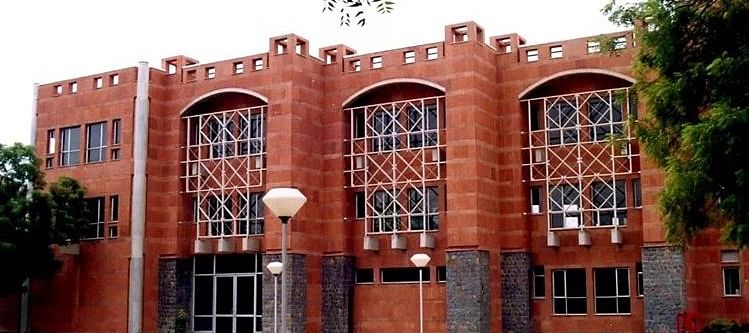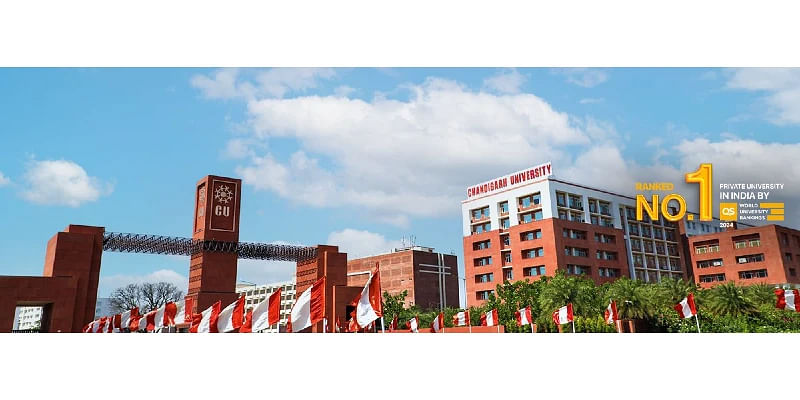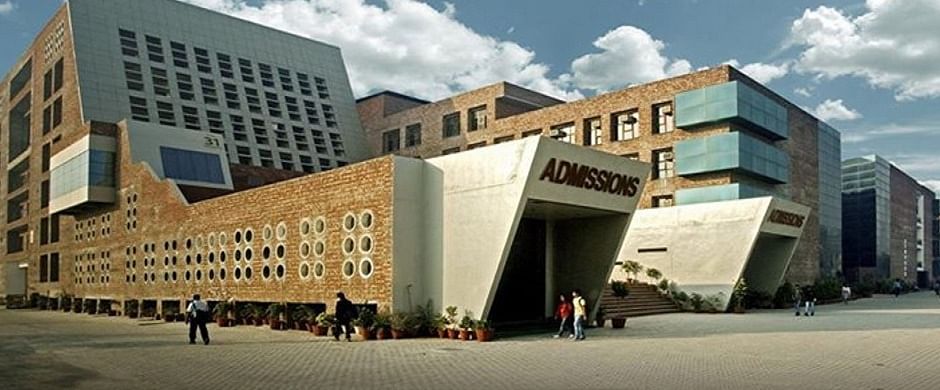BSc MLT Syllabus and Subjects 2026
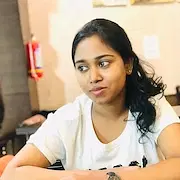
BSc MLT syllabus is divided into six semesters focusing majorly on Human Anatomy, Biochemistry, Cell Physiology, Respiratory System, Cardiovascular System, Blood Composition, Endocrine System, Excretory System, etc. The B.Sc MLT course program specializes in understanding the human system and its function to perform laboratory-related diagnostic tests to treat any medical cases.
The core BSc MLT subjects include Fundamentals of Medical Laboratory Technology, Histopathology & Histotechniques, Cytology & Cytotechnology, Principles of Lab Management & Medical Ethics, etc.
In addition to core topics, students can select elective subjects like Communication and Soft Skills, Computer Applications, Health Communication, etc. The teaching methodologies include practical training in areas such as blood banking, immunology, and diagnostic techniques.
Table of Contents
BSc MLT Semester-wise Syllabus
BSc MLT syllabus focuses extensively on understanding the functions and structure of human anatomy and physiology to help the students perform diagnostics tests related to various medical conditions. The course covers both fundamentals and skill-based subjects. Listed below is the semester-wise syllabus for BSc in MLT course:
First-Year BSc MLT Syllabus
The BSc MLT syllabus 1st year focuses on Human Anatomy, Pharmacology, Human Physiology, Biochemistry, Bio-Medical Waste Management, etc. Tabulated below is the semester-wise syllabus for BSc MLT 1st year:
|
Semester-I |
Semester-II |
|
Fundamentals of Medical Laboratory Technology |
Fundamentals of Medical Laboratory Technology & Biomedical Techniques |
|
Human Anatomy-I |
Human Anatomy-II |
|
Pharmacology Theory |
Bio-Medical Waste Management |
|
Human Physiology -I |
Human Physiology -II |
|
Biochemistry |
General Microbiology and Immunology Theory |
B.Sc MLT First Year Syllabus Practical Subjects
Some of the practical topics in the BSc MLT 1st year subjects are given below:
- Human Anatomy and Physiology-I Practical
- PC Software Lab
- Human Physiology-I Practical
Second-Year BSc MLT Syllabus
The BSc MLT 2nd year syllabus includes subjects such as General Hematology, Pathology, Systemic Bacteriology, Virology, Mycology, etc. Listed below is the semester-wise breakdown of the B.Sc MLT second year syllabus:
|
Semester-III |
Semester-IV |
|
General Hematology |
Pathology II |
|
Pathology-I |
Histopathology & Histotechniques -II |
|
Parasitology and Entomology |
Systemic Bacteriology, Virology and Mycology |
|
General Bacteriology |
Study Tour |
|
Histopathology & Histotechniques |
Environmental Sciences |
B.Sc MLT Second Year Syllabus Practical Subjects
Some of the practical topics in the B.Sc MLT second-year subjects are given below:
- Clinical Haematology-I Practical
- General Bacteriology-Practical
- Microbiology, Immunology & Serology-II Practical
Third-Year BSc MLT Syllabus
The B.Sc MLT third-year syllabus focuses on subjects such as Immunohematology and Blood Banking, Preventive and Social Medicine, Clinical Endocrinology and Toxicology, etc. The table below consists of the BSc MLT 3rd year syllabus:
|
Semester-V |
Semester-VI |
|
Parasitology |
Cytogenetics & Tissue Culture |
|
Immunohematology & Blood Banking |
Diagnostic Molecular Biology |
|
Preventive and Social Medicine |
Advanced Diagnostic Techniques |
|
Basic Tissue Pathology |
Clinical Endocrinology & Toxicology |
|
Diagnostic Cytology |
Internship |
B.Sc MLT Third Year Syllabus Practical Subjects
The practical subjects for the BSc MLT third-year syllabus are as follows,
- Immunohematology & Blood Banking Practical
- Clinical Enzymology
- Cytology & Cytotechnology-Practical
BSc MLT Subjects
BSc MLT course subjects foster a holistic understanding of Human Anatomy, Human Physiology, Biochemistry, and Pharmacology to prepare the students for collaborative practice in various fields.
BSc MLT subjects in 1st year include topics such as Human Anatomy, Anatomy of the Endocrine System, Anatomy of the Cardiovascular system, Anatomical terminologies, etc. B.Sc in MLT subjects are bifurcated into core subjects and electives, the details of which are given below:
Core B.Sc MLT Subjects
The BSc MLT core subjects focus majorly on the theoretical and practical aspects of the course which include understanding the diagnostics techniques, report generation, General Microbiology and Immunology, Lab Management and Ethics, etc. Listed below are the core subjects of the BSc MLT course:
- Fundamentals of Medical Laboratory Technology
- Human Anatomy
- Microbiology
- General Biochemistry
- Pharmacology
- Histopathology & Histotechniques
- General Microbiology and Immunology
- Systemic Bacteriology, Virology and Mycology
- Cytology & Cytotechnology
- Principles of Lab Management & Medical Ethics
BSc MLT Elective Subjects
The students are allowed to choose the elective subjects of their choice based on various factors such as placement opportunities, scope for higher studies, demand in the market, etc. Listed below are the elective subjects for B.Sc in MLT courses:
- Communication and Soft Skills
- Computer Application
- Value and moral education
- Health Education & Health Communication
BSc MLT Subjects in Detail
BSc in MLT syllabus covers basic and advanced topics related to various aspects of the course to enable students to work in different fields in Medical Laboratory Technology such as optical Laboratory Technician, MRI Technician, Dental Machine Technician, Radiology Technician, and CT Scan Technician. Tabulated below are the important subjects in the B.Sc MLT course along with the topics covered:
|
BSc MLT Course Subjects |
Topics Covered |
|
Introduction to Health |
Concept of Health, Concept of well-being, the standard of living, Quality of Life, Hygiene, Dimensions of Health, Positive Health, The Spectrum of Health, Spectrum of Disease, and Responsibility for Health. |
|
Biochemistry |
Introduction to Clinical Biochemistry and Role of Medical Lab Technologist, Glassware & Plastic Ware used in the Lab, Calibration of Volumetric Apparatus, Cells and Functions, Atomic Structure |
|
Human Anatomy & Physiology |
Composition of Blood and Muscle, Gastro Intestinal Tract, Excretory System, Endocrines System, Reproductive System, Cardio Vascular System, Respiratory System, and Central Nervous System. |
|
Fundamentals of Medical Laboratory Techniques and Biomedical Techniques |
Common Lab Accidents and Ways for their Prevention, Common Laboratory Hazards, Medico-Legal Aspects of Lab Technology, and Methods of Qualitative Analysis. |
|
Bio-Medical Waste Management |
Bio-Medical Aaste – Concepts and Perceptions, Waste Generation, Segregation, Disposal, Training, Occupational Safety and Health Issues. |
|
Pharmacology |
General Pharmacology, Drugs Acting on the Central Nervous System, Drugs acting on the autonomic nervous system, Drugs acting on the respiratory system, and Drugs acting on the cardiovascular system. |
College-Wise BSc MLT Syllabus
The B.Sc MLT syllabus may differ from college to college depending on the curriculum and program objectives. To access a particular college syllabus, students can visit the college's official website and download the B.Sc MLT Syllabus 2023 PDF. Listed below is the B.Sc MLT syllabus from top colleges:
JIPMER BSc MLT Syllabus 2023
The Jawaharlal Institute of Postgraduate Medical Education & Research BSc MLT syllabus focuses on developing skills related to handling lab equipment, biomedical safety, waste disposal, healthcare communication, lab readings, etc. Listed below is the semester-wise breakdown of the JIPMER B.Sc MLT syllabus:
|
Semester-I |
Semester-II |
|
Anatomy Theory |
General Biochemistry Theory |
|
Physiology Theory |
General Biochemistry Practical |
|
Physiology Practical |
Pharmacologist Theory |
|
Anatomy Practical |
Pharmacologist Practical |
|
Semester-III |
Semester-IV |
|
General Microbiology and Immunology Theory |
Systematic Bacteriology, Virology and Mycology |
|
General Microbiology and Immunology practical |
Systematic Bacteriology, Virology and Mycology practical |
|
Parasitology and Entomology Theory |
Hematology and Blood Banking Theory |
|
Parasitology and Entomology Practical |
Haematology and Blood Banking Practical |
|
Semester-V |
Semester-VI |
|
Preventive and Social Medicine Theory |
Clinical Biochemistry Theory |
|
Preventive and Social Medicine Practical |
Clinical Biochemistry Practical |
|
- |
Histopathology and Cytology Theory |
|
- |
Histopathology and Cytology Practical |
B.Sc MLT Syllabus MGR University 2023
The B.Sc MLT syllabus for MGR University focuses on both theoretical and practical aspects of the course with hands-on practicals, clinical workshops, etc. The semester-wise breakdown of the MGR University BSc MLT syllabus is given below:
| First Year | |
| Fundamentals of Chemistry | General Methodology Basics |
| Human Biology | Basics of Physics and Principles of Instrumentation |
| Laboratory Work/Practical | Principles of Instrumentation Practical/ Laboratory Work |
| Second Year | |
| Fundamentals of Biochemistry-I | Fundamentals of Clinical Pathology |
| Histopathology and Cytology Techniques | Basics of Hematology |
| Minor Project Work | Entomology and Microbiology Basics |
| Practical/Laboratory Work | Practical/Laboratory Work |
| Third Year | |
| Advanced Microbiology | Fundamentals of Coagulation |
| Biochemistry-II | Transfusion Medicine Concept |
| Elective-I | Project Report |
| Elective-II | Viva/Voce |
| Practical/Laboratory Work | - |
BSc MLT Project Topics
As a part of the B.Sc MLT syllabus, students should submit project work during their final year on topics related to medical laboratory technology. Given below are some of the trending project topics for BSc MLT students
- Anaemia in Pregnancy
- Automated data analysis of test report results and their scientific interpretation
- Chemical Quality Assessment and Production of Aspirin
- Physicochemical Analysis of different types of paracetamol
- Microbial Evolution Of Raw Milk From a Dairy Farm
- Comparative Analysis of Microbial Load Of Enugu Main Water Production and Water Availability to IMT Campus
BSc MLT Course Structure
The B.Sc MLT course structure is designed to provide the students with all the required knowledge and practical skills required to work in healthcare settings. Below listed is the BSc MLT Course Structure:
- VI Semesters
- Core Subjects
- Elective Subjects
- Practical Lab Workshops
- Projects
- Internships
BSc MLT Teaching Methodology and Techniques
For a well-rounded education, B.Sc MLT subjects encourage students to participate in internships, workshops, etc to impart practical knowledge and hands-on experience along with traditional classroom lessons. Here are the teaching methodology and techniques for BSc MLT courses:
- Educational Technologies
- Traditional Classroom Based Teaching
- Project Based Learning
- Guest Lectures
- Workshop
- Webinars
- Group Discussion
BSc MLT Books
Apart from the BSc MLT subjects covered in the syllabus, students can refer to books by famous authors on topics related to medical laboratory technology to gain in-depth knowledge about the subjects. Listed below are some of the B.Sc MLT books:
|
Reference Books for BSc MLT Course |
Authors |
Topics Covered |
|
Medical Laboratory Technology |
Ramnik Sood |
Clinical Immunology and Serology, Mathematics for the Clinical Laboratory, Phlebotomy Essentials, etc. |
|
Urinalysis and Body Fluids |
Susan King Strasinger |
Quality Assessment and Safety, Urine Specimen Types, Collection, and Preservation, Routine Urinalysis Physical Examination, etc. |
|
Informatics for the Clinical Laboratory: A Practical Guide for the Pathologist |
Daniel Cowan |
Computer-Based Patient Records, Electronic Health Records, and Networked Healthcare Systems, etc. |
Top BSc MLT Colleges
Top Science Entrance Exams
BSc MLT Fee Structure
FAQs on BSc MLT Syllabus and Subjects
Q: What are BSc MLT core subjects?
Q: What are the passing marks for B.Sc MLT?
Q: Does pursuing a BSc in MLT make you a doctor?
Q: Is BSc MLT hard or easy?
Q: What is the focus of BSc MLT subjects in first year?
Q: Is there maths in BSc MLT?
Q: Is BSc MLT better than Nursing?


